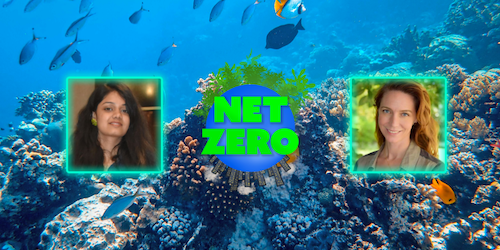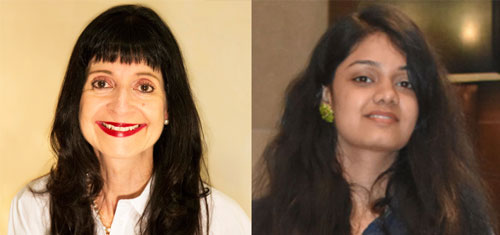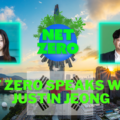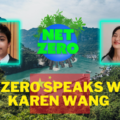今月, 観客はスクリーニングすることができます ネット・ゼロがキム・コブと語る on the Planet Classroom Network. This film in the Net Zero series is curated by the Protect Our Planet Movement and Planet Classroom.
中に ネット・ゼロがキム・コブと語る, climate activist Drishya Pathak delves into Dr. Cobb’s latest research findings, shedding light on crucial aspects that include El Niño’s impact on coral reefs and the significant role played by the Southern Ocean in shaping global climate patterns. With a focus on the importance of paleoclimate data, DR. Cobb reveals its significant role in studying historical climate patterns, not only in the Indian Ocean but also beyond.
This enlightening conversation brings together two passionate advocates for a sustainable future, offering invaluable insights that have the potential to shape our understanding and drive positive change on the journey towards a net-zero world.
教育のためのグローバル検索 is pleased to welcome Drishya Pathak.
Welcome Drishya. Why did you decide to interview Kim Cobb? 彼女についてあなたにインスピレーションを与えたもの?
DR. Kim Cobb has been a significant inspiration to me in multiple ways. As a scientist, she has been utilising her research expertise to contribute to community development. Her leadership as a woman has been a source of inspiration for women everywhere. Throughout the years, her scientific studies have been instrumental in enhancing our understanding of the impact of climate change on the marine ecosystem. さらに, she recognizes the importance of effective communication of research work, which is crucial in making a difference.
面接で一番驚いたこと?
During my interview with Dr. キム・コブ, what particularly inspired me was her bottom-up approach to driving change. She focuses on identifying local issues and uses her area of expertise to create climate adaptation and mitigation models. This approach demonstrates her commitment to addressing problems at the grassroots level and finding practical solutions that can make a tangible impact. It’s impressive to see how she leverages her scientific knowledge and skills to make a positive change in a local region.
Please share your main takeaways for the Net Zero audience from your interview?
初めに, I think the changing nature of the oceans over time represents the most significant climate signal for the marine ecosystem. It is evident that increasing temperatures, driven by the burning of fossil fuels, have had a notable impact on oceanic conditions. これに関連して, it is worth exploring whether recent El Niño events exhibit greater strength compared to those observed in the past 50 へ 100 年.
第2, the influence of oceanic weather patterns extends from the Arctic to tropical regions, highlighting the interconnectedness of various tipping points. It is noteworthy that the Intergovernmental Panel on Climate Change (IPCC) is actively emphasizing the link between El Niño and emissions from fossil fuels. その結果として, much of their research focuses on understanding the interdependencies between these factors, with their recent report also incorporating contributions in this regard. Certain regions display higher sensitivity to climate change than others, underscoring the importance of climate resilience efforts.
最終的に, multiple organisations are actively involved in gathering data for coral restoration efforts and have established a global network of researchers. This network enables other researchers to access valuable information spanning the last 200 年, which encompasses the initial stages of global warming up to the present day. Remarkably, this collaborative effort has resulted in the collection of approximately 150-200 レコードは, including valuable coral data going back to 1800. These extensive records serve as a valuable resource for studying the long-term impacts of climate change on coral ecosystems.
Thank you Drishya!
C言語. M. Rubin and Drishya Pathak
お見逃しなく ネット・ゼロがキム・コブと語る, 現在、Planet Classroom Network でストリーミング配信されています。この映画は、Protect Our Planet Movement と Planet Classroom によってキュレーションされました。.







最近のコメント